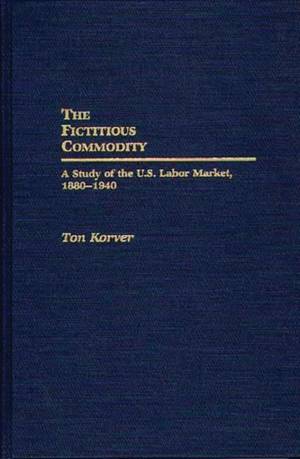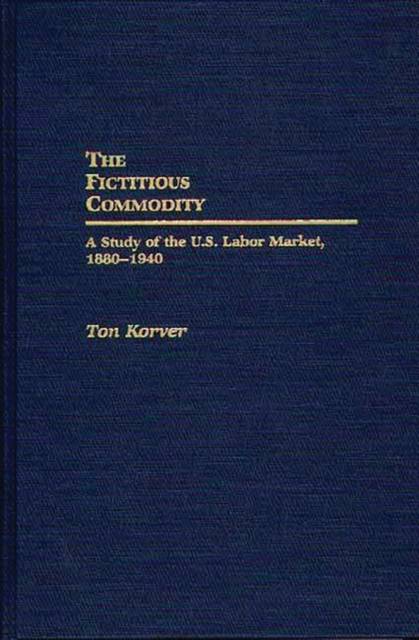
- Afhalen na 1 uur in een winkel met voorraad
- Gratis thuislevering in België vanaf € 30
- Ruim aanbod met 7 miljoen producten
- Afhalen na 1 uur in een winkel met voorraad
- Gratis thuislevering in België vanaf € 30
- Ruim aanbod met 7 miljoen producten
Omschrijving
Covering the development of the U.S. labor market from 1880-1940, The Fictitious Commodity stresses relations of authority (versus power) in employment. Deemphasizing concepts of market and contract, Korver focuses on the differential statuses of employer/employee and demonstrates the inadequacy of conventional economic discourse on labor market analysis. U.S. companies, while undergoing rapid industrialization, tackled both organizational and technological problems. According to Korver, unskilled labor was the common root to these problems. Emphasizing the importance of this usually forgotten category, Korver's history of the U.S. labor market is seen through America's unskilled labor--its vicissitudes and its varying options of citizenship.
In 19th-century America unskilled labor was both expensive and in short supply. According to Korver, new immigration coupled unskilled labor with the novel option of citizenship. Removing its segregated status, new immigration became an integral part of the emerging world of mass production. Korver demonstrates how the ground was prepared technologically by connecting mechanization and standardization. Bureaucratization of employment relationships, development of industrial unionism, and social security serve to illustrate the organizational integration of the new immigrant. Advanced students and researchers in the field of labor economics, labor history, and the sociology of labor markets will appreciate Korver's unique approach to the history of the American labor market.Specificaties
Betrokkenen
- Auteur(s):
- Uitgeverij:
Inhoud
- Aantal bladzijden:
- 200
- Taal:
- Engels
- Reeks:
Eigenschappen
- Productcode (EAN):
- 9780313273384
- Verschijningsdatum:
- 24/08/1990
- Uitvoering:
- Hardcover
- Formaat:
- Genaaid
- Afmetingen:
- 161 mm x 240 mm
- Gewicht:
- 503 g

Alleen bij Standaard Boekhandel
Beoordelingen
We publiceren alleen reviews die voldoen aan de voorwaarden voor reviews. Bekijk onze voorwaarden voor reviews.











